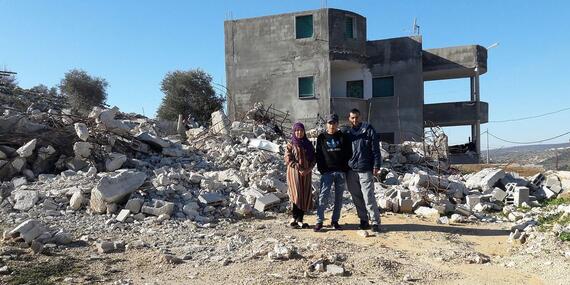Today's top news: Occupied Palestinian Territory, Chad

Occupied Palestinian Territory
OCHA warns that humanitarian operations in Gaza are still heavily restricted by hostilities, insecurity and mass evacuation orders affecting aid transport routes and facilities.
Despite these challenges, the UN and partners continue their operations.
We reiterate that parties must respect international humanitarian law at all times. This means that civilians must be protected and their essential needs – including food, shelter, water and health – must be met, wherever they are in Gaza. This applies to those under evacuation orders regardless of whether they move or stay. Those who leave must have enough time to do so, as well as a safe route and a safe place to go.
In the West Bank, OCHA warns that people there are increasingly exposed to deadly warfare tactics that seem to exceed international standards for law enforcement.
Today, at least nine Palestinians, including children, were killed and others injured, in the governorates of Jenin, Tulkarm and Tubas. The operations involved helicopters, drones, and ground forces.
Most of those killed were hit by airstrikes, while others were subject to sniper fire or other lethal means. Military bulldozers have been observed destroying infrastructure, with initial indications that damage has been caused to roads and electricity equipment. This resulted in a power outage across the Jenin refugee camp.
Israeli forces also conducted operations in close proximity to four hospitals – two in Jenin and two in Tulkarm. Hospitals have been surrounded and all movement in and out of the facilities have been affected, particularly that of medical teams.
Since 7 October, more than 630 Palestinians have been killed in the West Bank, including East Jerusalem. More than 140 of them were killed in about 50 airstrikes, up from six fatalities in airstrikes in 2023 before 7 October. Most of the fatalities in this period were killed by Israeli forces but at least 11 were killed by settlers.
During the same period, 15 Israelis, including nine members of Israeli forces and five settlers, were killed by Palestinians in the West Bank, including East Jerusalem. And in Israel, attacks by Palestinians from the West Bank resulted in the killing of ten Israelis and seven Palestinian perpetrators.
OCHA says that Israeli forces must adhere to international policing standards, where lethal force and firearms are a last resort used only against imminent threats of death or serious injury.
Chad
OCHA reports that all of Chad's 23 provinces are now affected by floods following heavy rains which started in June.
According to local authorities, 145 people have lost their lives. More than 960,000 people have been affected, with some 70,000 homes lost.
Agriculture has also been severely impacted, with more than 250,000 hectares of land flooded and 30,000 head of livestock washed away, which we fear will lead to greater food insecurity. Chadian authorities had already declared a national food security and nutrition emergency in February and nearly 3.4 million people are facing acute hunger (Integrated Food Security Phase Classification 3+) in the current lean season.
Many families affected by the flooding have had to leave their homes and are staying in schools and other temporary sites. They need shelter, food, water and medical care. Chadian authorities, UN agencies and humanitarian partners are mobilizing and distributing emergency aid, but high waters are hampering delivery. Some affected areas are currently only accessible by canoe.
Humanitarian partners estimate they need US$64 million to respond to help people affected by the floods. So far, only about 10 per cent of these resources have been made available.
Response capacity is already severely strained in Chad by the ongoing crisis in the country’s east, where large numbers of Sudanese refugees have fled to escape conflict in neighboring Sudan.
Across Chad, humanitarian partners were already working to respond to humanitarian needs before the floods. The 2024 Humanitarian Response Plan seeks $1.1 billion for aid operations across the country, but is only 35 per cent funded as of today at $393 million.
